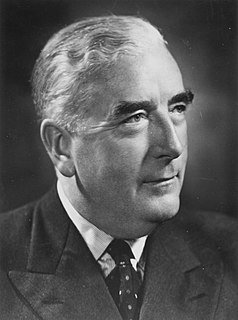A Quote by Henry Wadsworth Longfellow
Dreams or illusions, call them what you will, they lift us from the commonplace of life to better things.
Related Quotes
. . . More things are wrought by prayer Than this world dreams of. Wherefore let thy voice Rise like a fountain for me night and day. For what are men better than sheeps or goats That nourish a blind life within the brain, If, knowing God, they lift not hands of prayer Not only for themselves but for those who call them friend? For so this whole round earth is every way Bound by gold chains about the feet of God.
Each of us will taste the bitter ashes of life, from sin and neglect to sorrow and disappointment. But the atonement of Christ can lift us up in beauty from our ashes on the wings of a sure promise of immortality and eternal life. He will thus lift us up, not only at the end of life, but in each day of our lives.
We grow great by dreams. All big men are dreamers. They see things in the soft haze of a spring day or in the red fire of a long winter's evening. Some of us let these great dreams die, but others nourish and protect them; nurse them through bad days till they bring them to the sunshine and light which comes always to those who sincerely hope that their dreams will come true.
Nothing goes on forever. I think that's one of the illusions of life. When I talk about my life being an extension of my dreams and fantasies, there's a tendency to think of them as immature. I live in a mature world. The majority of the people in this society live with delusions and illusions much more irrational and hurtful than mine. They deal with mortality, with fantasies relating to heaven and hell, and they don't really deal with their problems at all.
The abolition of religion as the illusory happiness of the people is the demand for their real happiness. To call on them to give up their illusions about their condition is to call on them to give up a condition that requires illusions. The criticism of religion is, therefore, in embryo, the criticism of that vale of tears of which religion is the halo.
The very shape of our dreams defines us. We learn about the world and try out our thoughts and visions in them. Our dreams goad us and drive us and summon and sustain us and when we are old they comfort us. Magic is a kind of dream, and love is a dream, and hope is a dream. Without our dreams, there is no sweetness, no purpose to life.
Of course we believe these things. We believe in social security. We believe in work for the unemployed. We believe in saving homes. Cross our hearts and hope to die! We believe in all these things. But we do not like the way that the present administration is doing them. Just turn them over to us. We will do all of them, we will do more of them, we will do them better and, most important of all, the doing of them will not cost anybody anything!
If we have goals and dreams and we want to do our best, and if we love people and we don’t want to hurt them or lose them, we should feel pain when things go wrong. The point isn’t to live without any regrets, the point is to not hate ourselves for having them… We need to learn to love the flawed, imperfect things that we create, and to forgive ourselves for creating them. Regret doesn’t remind us that we did badly — it reminds us that we know we can do better.
[Learn] to slow down and perceive the mysterious events and opportunities that happen in life. We call them coincidences, but if we look closely we see they are meaningful. They bring us just the right information at just the right time to extend our careers, relationships, and growth. These events feel destined in some way, as though the world is set up to help us make a better life, work through our problems, and reach our dreams - if we just pay attention.
Being tired of all illusions and of everything about illusions – the loss of illusions, the uselessness of having them, the prefatigue of having to have them in order to lose them, the sadness of having had them, the intellectual shame of having had them knowing that they would have to end this way.
I'd like them to see that those things that set us apart or make us different can be wonderful contributions to the world around us. I'd like them to see that size and color are irrelevant to the dreams we envision for ourselves. And I'd also love for them to see that life is a journey, and every step of the way, we can learn something and become stronger and wiser.






































